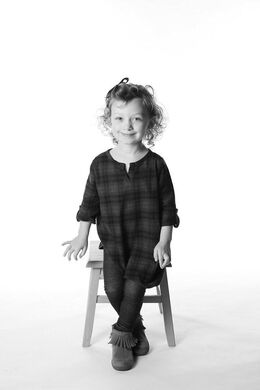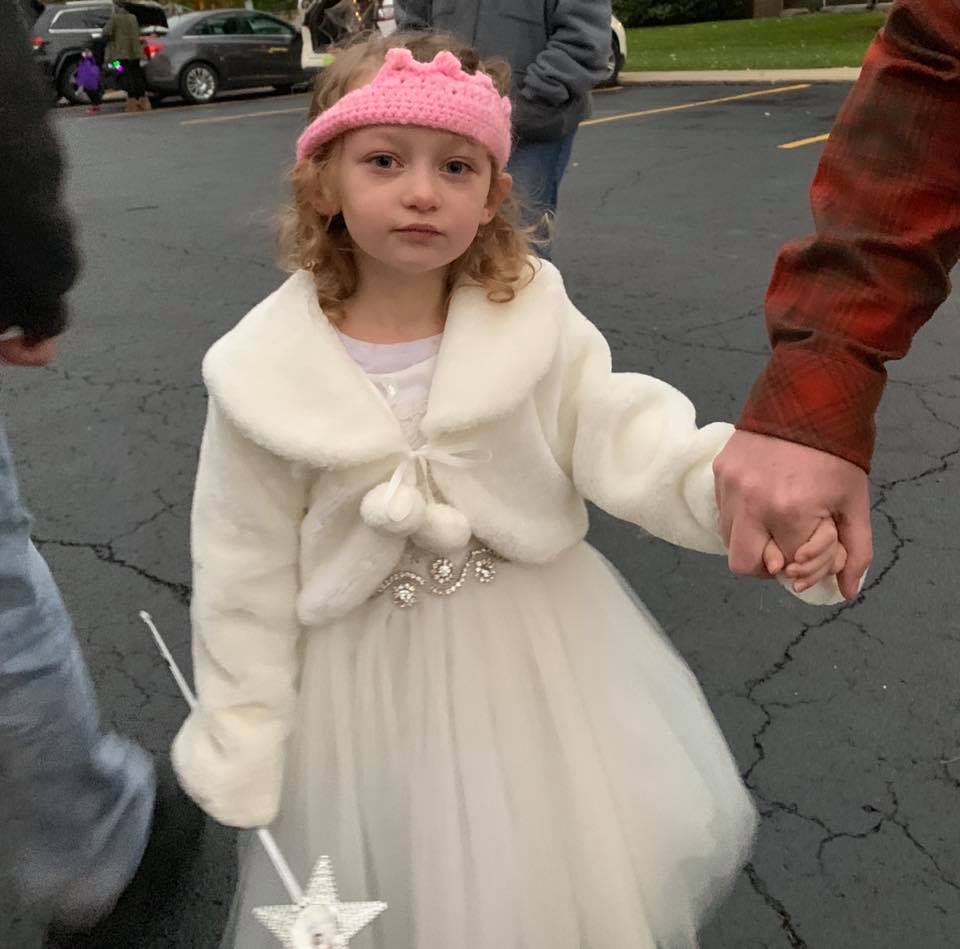Meet Rainee, our 2018 AmbassadorRainee is an adorable, smart, funny, loveable little girl. She enjoys dance and dolls like every little girl does, and she just happens to struggle with Sensory Processing Disorder.
Sensory Processing Disorder or SPD, is when the brain has trouble organizing information from the senses. Sensory processing issues can impact a child’s social skills. It can also cause difficulties in the classroom. Although every person is unique, people with SPD usually fall into one of two categories, hypersensitive or hyposensitive. Rainee has hyposensitive Sensory Processing Disorder. Hyposensitive (or undersensitive) children lack sensitivity to their surroundings. They might have a high tolerance for or indifference to pain. They may be “sensory seeking,” meaning they have a constant need to touch people or things—even when it’s not appropriate. They may also have trouble with personal space or be clumsy and uncoordinated. They might be constantly on the move and take risks on the playground, accidentally harming other kids when playing. Rainee’s parents, Shane and Jackie saw signs from infancy. Like many children with SPD, Rainee needed to be held much of the time. By the time Rainee was 18 months, her symptoms became severe enough to affect normal functioning and disrupt everyday life. “When Rainee was 18 months we were concerned because she was constantly fidgeting, didn’t have an interest in playing, was not speaking much at all and rarely made eye contact, said Jackie. She would constantly run into the couch or other things and spent hours lining up and organizing toys.” Her parents expressed their concerns to their pediatrician who referred the family to SRRC. Rainee began Developmental and Speech Therapy and eventually attended Toddler Class in Ottawa. She also received Occupational Therapy services. Therapy depends on a child's individual needs. But in general, it involves helping children do better at activities they're normally not good at and helping them get used to things they can't tolerate. “Rainee will lead a normal life", said Kelly Bault, Developmental Therapist at SRRC. "She will just have to work a little harder than a typical child. Kids don’t grow out of Sensory Processing Disorder; they grow into it, unless we spot it and treat it — the sooner, the better.". "Rainee still has many problems daily, but they are a lot more manageable. She is now playing with dolls, socializing with other kids and even participating in a dance class. Without SRRC, none of this would be possible", said Shane. 2019 UPDATE: "Rainee is still a fun loving, super active and creative kid! She has grown so much in the last year. Her vocabulary has increased tremendously and she loves participating in circle time in class. She is continuing to learn to write her letters and numbers and of course still loves to sing and dance. Her imaginary play has expanded, and we love watching her play out her little stories with her babies. We feel if not for the Early Intervention through SRRC and toddler class Rainee would not be where she is today. The services and people at SRRC not only have helped Rainee but they have always been there for us. We know they are only a call away to help answer any questions we have. We cannot thank them enough for all they do!" |
© Starved Rock Regional Center for Therapy and Child Development (SRRC). All rights reserved.
Starved Rock Regional Center does not unlawfully discriminate internally (in its administrative and program operations) or externally (in provision of services) on the basis of race, political orientation, religion, gender, sexual orientation, age, national origin, ethnicity, ancestry, marital status, veteran status, or mental or physical disability or any other status prohibited by applicable law.
Starved Rock Regional Center does not unlawfully discriminate internally (in its administrative and program operations) or externally (in provision of services) on the basis of race, political orientation, religion, gender, sexual orientation, age, national origin, ethnicity, ancestry, marital status, veteran status, or mental or physical disability or any other status prohibited by applicable law.


